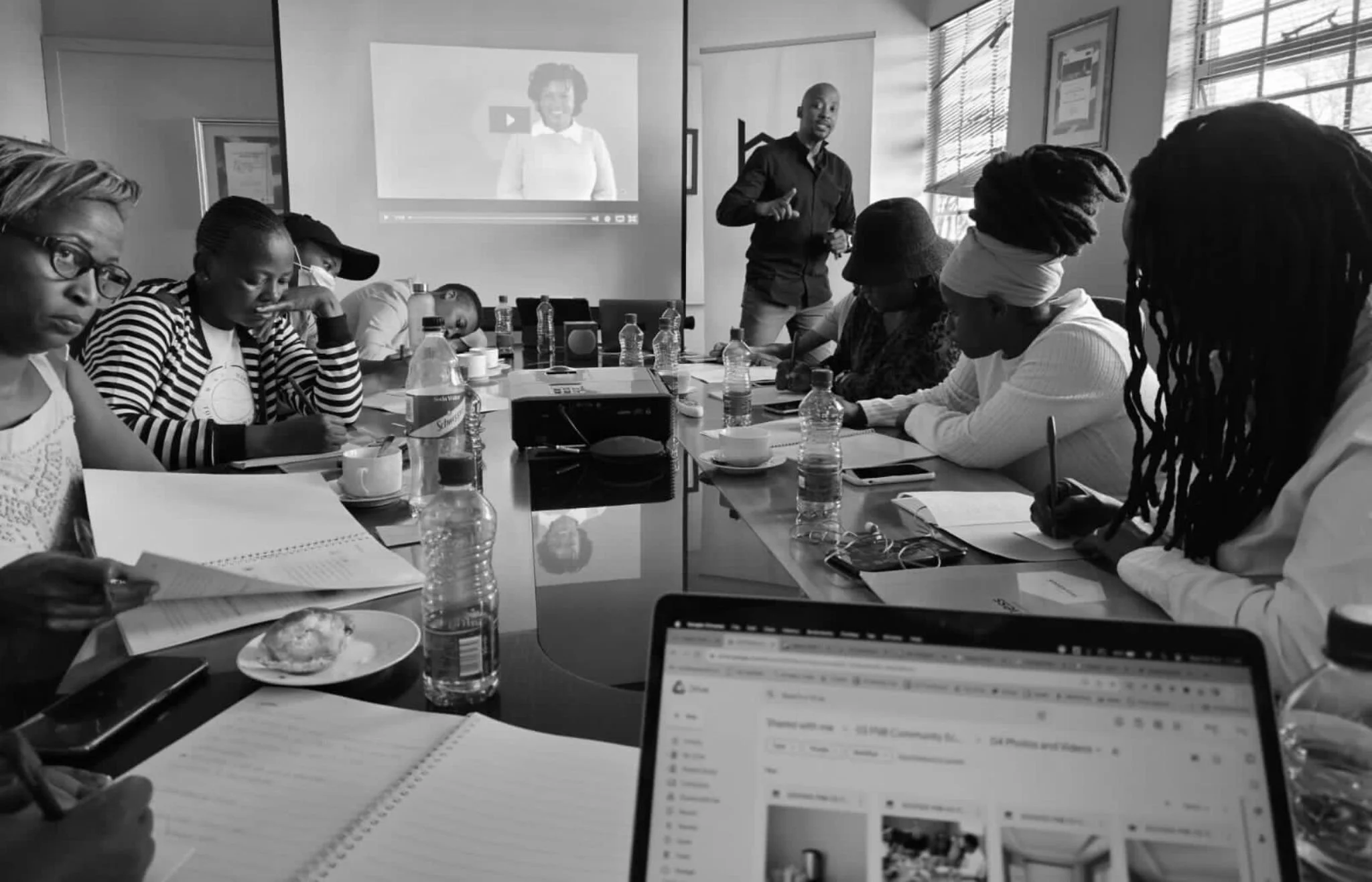The Habit Of Hope
There are a lot of reasons to remain the opposite of hopeful.
Yesterday my colleagues at Heavy Chef Foundation shared a report by the IMF on global economic growth trends. Sub-Saharan Africa is looking okay. South Africa, not so much. We’re tracking 0.1% growth this year. Compare that to the rest of the region at 3.6%.
At the SMME level of business, things are bad. According to a 2023 Nedbank survey, there is a ‘blood bath’ at spaza shops. The spaza segment makes up 6% of our GDP, 2,6m jobs and an economy of around R600m pa. Due to loadshedding, 83% of the spaza shop owners have had to downsize.
Entrepreneur mental health is at an all-time low in South Africa. As a result of all the systemic challenges around us, our business leaders are taking some major strain. Heavy Chef’s research shows that community members within the entrepreneur sector are finding it difficult to manage their mental wellbeing.
Why does South Africa suck so badly, relative to our neighbours?
A simple answer is: shitty leadership. Of course, it’s way more complex than that but the relevant government leaders appear incapable of making the necessary (yet potentially polarising) decisions required to turn the triple tidal threats of energy, infrastructure and crime around.
In the absence of effective leaders what do we do, as the people on the ground?
The options are a) leave, if we can; b) stay and complain; or c) roll up our sleeves and lead, wherever we have an opportunity.
The thing is, the third option requires a lot of energy.
The specific type of energy we need is fuelled by a single source: hope.
The problem with ‘hope’ right now is that South Africa is in the midst of a pessimism epidemic. Discovery founder Adrian Gore puts it, “There is an ‘optimism stigma’ in South Africa.”
In other words, we feel better about ourselves when we call out the bad stuff, rather than espousing the good. Being optimistic feels silly in the face of so much shitty news. Being pessimistic makes us feel a little more like we’re on top of things.
As Gore says, “Pessimism seems smart, but it isn’t.”
In order to remedy this epidemic we need to rehabilitate ourselves. This requires active discipline.
It requires a daily habit of hope.
So, how the heck do we do that?
In order to engender a good habit, the author of The Power Of Habit, Charles Duhigg, advises us to zero in on an ‘anchor habit’. Instead of trying to quit 10 things, pick one bad habit and aim to replace it with one good one.
In order to ‘be healthy’, it’s no good for us to just ‘eat better’. We must first identify a habit that needs replacing. So, start with a bad habit - ‘eating sugary snacks’, for example. Then, replace it with ‘eating healthy snacks’.
The central habit in South Africa’s case is pessimism. We need to replace pessimism with hope. Think of ‘hope’ not as an outcome, but as something to work on, like a bicep. Here are three steps to fostering a habit of hope.
1) Learn
Spend time learning the truth. Expand your net. You may be surprised to know that the truth is pluralistic, not absolute. Read diverse sources. Listen to diverse voices. Join Heavy Chef. We have 1000s of genuinely inspiring, good-news stories. This is a rich, deep country, with rich deep learnings. There are opportunities everywhere if you’re prepared to look.
2) Do
Let’s get involved. Let’s serve our communities. I am constantly surprised at how serving people engenders hope. When I actively walk around my neighbourhood, the stories that I encounter are heartwarming and inspiring. Come join us at a Heavy Chef entrepreneur event. There’s one in CPT next week and one in JHB next month (fun fact: the name of one of our upcoming JHB speakers is ‘Hope’). There are tons of good narratives around us, everywhere. We don’t have to look far to realise there is a lot to fight for.
3) Share
Let’s spread the news. Let’s connect with our peers. Let’s discuss these stories with our colleagues and friends. Let’s allow for diverse opinions and feedback. Let’s keep the community growing through iterative changes, based on the data we receive. This does not mean being a ‘blind optimist’ as Admiral James Stockdale warned in Jim Collins’ book Good To Great. It means confronting the brutal truth, but never giving up hope. When sharing bad news, let’s try and provide a positive learning that can be derived from it. Stories are the most powerful message to share learnings. Authentically hopeful stories are even more powerful against a backdrop of despair.
We have a lot going on in this country. There are still many many reasons to be optimistic. We have been listing them on the Heavy Chef entrepreneur learning platform since we launched. We will continue to do so in the years to come.
Let’s weaponise hope together.
Being optimistic needs us to preserve our energy through renewed discipline. It requires us to commit to reversing the habit of pessimism and forging a new replacement habit instead.
Let me know how it goes.
Here’s a good news note to end off on: Heavy Chef’s research shows consistent optimism. In a recent report, 76% of the 8,967 entrepreneurs surveyed (including 1,667 township entrepreneurs) said they expect their business conditions to improve over the next 12 months.
How’s that for inspiration?
I’d love to hear your story.
Peace. -






